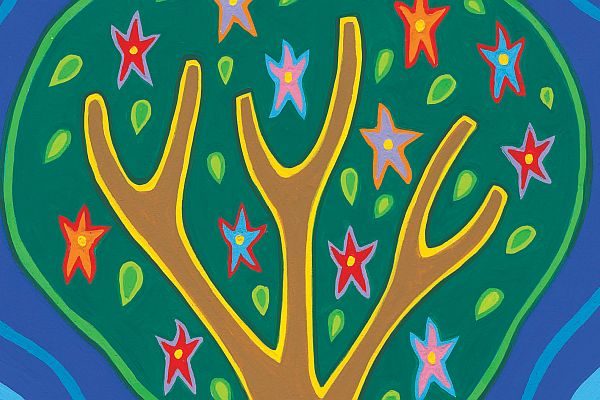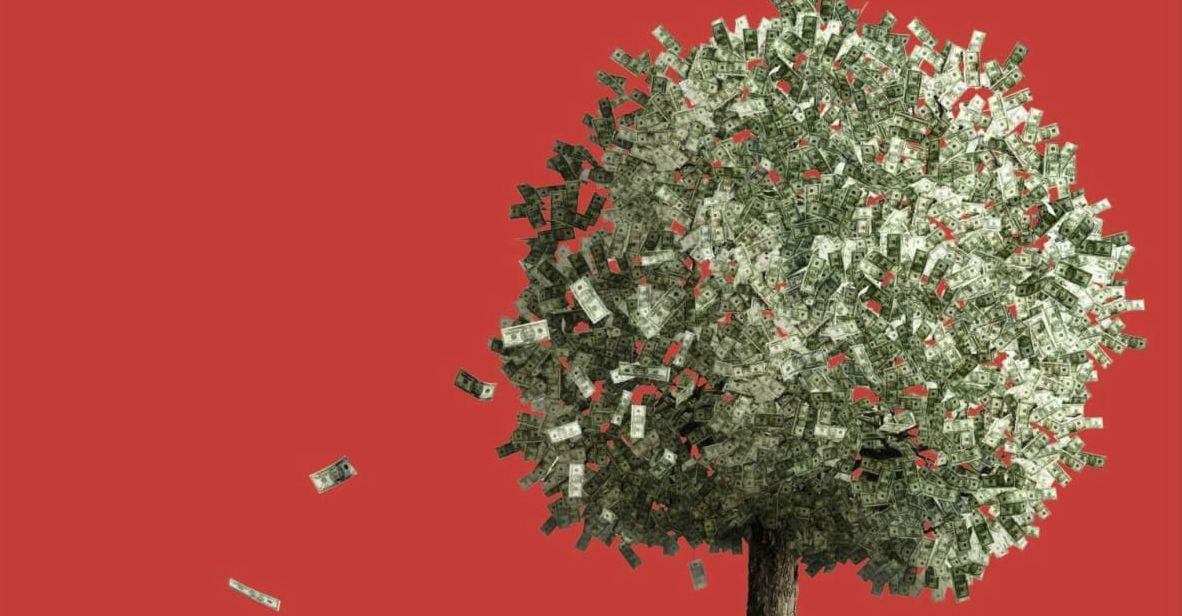The terror of the COVID19 pandemic is starkly demonstrating the vital importance of care: both the contribution that paid and unpaid carers make to society and the danger inherent in their often precarious working conditions. As Katrine Marçal noted in her excellent Who Cooked Adam Smith’s Dinner, ’there is no such thing as free care’: someone, somewhere (usually a woman) is paying the price. And if carers can’t afford to take time off work when they are ill, ultimately we will all reap the consequences.
 Penny Wincer has twice been an unpaid carer: first to her late mother who struggled with mental illness and addiction, and now to her autistic son Arthur. Her absorbing book Tender: The Imperfect Art of Caring is by turns a memoir, a series of interviews with others who care for family members, a manifesto for change, and a source of advice.
Penny Wincer has twice been an unpaid carer: first to her late mother who struggled with mental illness and addiction, and now to her autistic son Arthur. Her absorbing book Tender: The Imperfect Art of Caring is by turns a memoir, a series of interviews with others who care for family members, a manifesto for change, and a source of advice.
Care is easy to celebrate in the abstract, but this book grounds it in material reality. Care is sitting on the kitchen floor with your sleepless child in the early hours of the morning, researching and purchasing mobility aids, planning outings and appointments around your partner’s ability to access venues, wrangling with bureaucracy to ensure that your parent receives every scrap of assistance (adequate or otherwise) to which they are legally entitled.
Given longstanding discrimination against people with disabilities, there are sensitivities inherent in elevating the voices of family members who are carers. Wincer confronts this squarely, noting that telling her story ‘is a tricky road to navigate … there will be many who say I shouldn’t speak about it at all’. Her authorial voice is careful and nuanced: she notes the perils inherent in ‘parental oversharing’ about children with disabilities, particularly online, but also carers’ need to create supportive communities and share their experiences. Tender occupies a space where multiple truths collide. Writing of the everyday difficulties she experiences looking after her son Arthur, Wincer notes:
I’m not always the caregiver I wish I could be. But when I voice these feelings, I’m terrified that people will take that as a reflection of my son, that they will think, “Ahh, see, having a disabled child is a sad and depressing thing”. I want to scream and rail against this idea because it is not compatible with that other truth that being a mother to Arthur has been one of the greatest joys of my life.
While not shrinking from the challenges she faces Wincer is critical of charitable organisations such as Autism Speaks precisely because they ‘depend on fear-mongering to raise money’. She is also wary of universalising, and carefully picks apart the influence of race and class on carers’ experiences, noting that if she as a ‘white, middle class, non-disabled woman with a university education and a flexible career’ finds it difficult supporting a disabled child ‘you can bet that poverty, poor access to education, institutional racism, insecure housing, childhood trauma, learning difficulties, disability and chronic illness, gender violence, and language and cultural barriers all make accessing support far more difficult.’
It is ultimately our economic system that makes life so complicated for carers, who are often people in precarious positions: Wincer surveys the results of over a decade of austerity in the United Kingdom, noting that 40 per cent of disabled children live in poverty and their parents have limited ability to undertake paid work. Reading Tender called to mind a passage from Melissa Lucashenko’s magnificent 2013 essay Sinking Below Sight, which explored the lives of women living in Logan City; ‘the Black Belt’ of Brisbane. Lucashenko relates that one interviewee, Charmaine, had often been tasked with minding her younger siblings: she was left home all day at the age of six to look after her five-year-old brother, and, while completing high school, was woken at five am by her mother each day to feed the baby so she could go to her shift work. Telling Lucashenko of her worry and guilt about her own children, Charmaine says: ‘I’ve got nothing else to give. I’ve been looking after other human beings my entire life, since I was six years old, and I’m just exhausted.’
This bone weariness, and its source, were also recently evoked by Stephen Wright in this magazine. ‘I’m not tired because I’m a carer,’ he observed. ‘I’m tired because I’m a carer under capitalism’. For her part, Wincer notes that in advocating self-care she wants to ‘make it perfectly clear that it is in no way a replacement for the collective responsibility society needs to take in supporting those of us who are unpaid family carers. We cannot expect to make up for a lack of respite and for the energy we expend fighting for basic services for our loved ones by practising a bit of yoga.’
 Care also exists on a broader scale, as in Indigenous understandings of caring for country – a concept that was grossly distorted beyond all recognition in a recent address by the prime minister, when he characterised such care as best expressed by governments that ‘live within their means’. As Ambelin Kwaymullina explains in her book Living on Stolen Land:
Care also exists on a broader scale, as in Indigenous understandings of caring for country – a concept that was grossly distorted beyond all recognition in a recent address by the prime minister, when he characterised such care as best expressed by governments that ‘live within their means’. As Ambelin Kwaymullina explains in her book Living on Stolen Land:
across all Indigenous homelands
there is the fundamental reciprocity
that if you care for Country
Country will care for you.
Kwaymullina’s book is slender at only sixty-four pages, but its subject is weighty: colonialism in Australia and the urgency of creating ‘decolonised futures’. Its focus is also on the material, and starts with the ground we stand on, reminding us:
There is no part of this place
that was not
is not
cared for
loved
by an Aboriginal or Torres Strait Islander nation
The book is cast as a prose-style manifesto, and its structure initially seemed unconvincing, for its insights would surely be no less keen for being divided into paragraphs. The smooth flow of the text, though, helps deliver the author’s spiky truths and lodge them directly in the reader’s brain. Kwaymullina asks non-Indigenous Australians to act, and not on our terms; not as ‘do-nothing people’, ‘saviours’ or ‘discoverers’. The reader must listen, be patient, pay attention to ‘the noise of settler-colonialism/inside your head’ and remember that
Things that are good ideas
will fail
if implemented
in disrespectful ways
We are in a global moment of reckoning with racist and colonialist oppression, and one often-remarked upon reaction among white people has been to more closely interrogate whiteness: an impulse that is variously cast as either earnest self-improvement or navel-gazery. In Meanjin earlier this year, Alison Whittaker suggested that the popular thinking around white fragility was ‘an innovation … in white innocence’, noting that it ‘will never give me the title to your home.’ Kwaymullina’s narrative eschews such innovations, noting that in Australia there is, simply, ‘no place of innocence/for Settlers to stand.’ She does not encourage a look inward, and instead challenges her reader: ‘You are living on stolen land/What can you do about it?’
 The story of the political economy created on this stolen land over the past 230 years is the subject of Judith Brett’s latest Quarterly Essay The Coal Curse: Resources, Climate and Australia’s Future. In focusing on the uneven impacts of Australia’s overreliance on extractive industries, Brett notes that the ‘first Australians to suffer from the politics of the resource curse were Indigenous Australians,’ and explores the mining industry’s hard-fought campaigns against land rights and native title during the 1980s and 1990s.
The story of the political economy created on this stolen land over the past 230 years is the subject of Judith Brett’s latest Quarterly Essay The Coal Curse: Resources, Climate and Australia’s Future. In focusing on the uneven impacts of Australia’s overreliance on extractive industries, Brett notes that the ‘first Australians to suffer from the politics of the resource curse were Indigenous Australians,’ and explores the mining industry’s hard-fought campaigns against land rights and native title during the 1980s and 1990s.
The Coal Curse is born from the catastrophic bushfires of early 2020, which seem already to have been overshadowed in the public mind by the coronavirus pandemic. Brett seeks to explain how climate denial became so firmly entrenched in our political system ‘in an attempt to do something constructive with my grief and anger, and my fear for our collective future.’ Her essay is a depressing yet beautifully succinct economic history which sets out, in plain English, the mess we find ourselves in and why.
Brett’s writing is as sharp as ever, whether she is describing The Australian’s Paul Kelly as ‘never far from the orthodoxies of the powerful’, noting that Tim Fischer’s promise of ‘buckets of extinguishment’ seemed to characterise native title as a fire hazard, or observing that during the 1990s governments, instead of, ‘thinking hard about the economy’ focused on ‘attacking identity politics, fighting the history wars and distributing largesse to retirees and middle-class taxpayers.’ Brett explains at the outset that her goal for the essay was ‘not just to fume and blame, but to try to understand’. This task is handsomely achieved, and the reader is left with a keen sense of the precise peril Australia faces. In the circumstances, though, more fuming and blaming might have been welcome.



